Education Parliament against Modi Government’s Attack on Higher Education
Students, teachers and academicians from institutions across the country will congregate in an Education Parliament in Jantar Mantar, New Delhi on 5 August to expose the disastrous policy offensive pursued by the Modi government in the sector of Higher Education.
Also Read: AISA National Campaign Document on “Modi Government’s Attack on higher Education
You can also be a Part of this Initiative Just Click and Fill the Form
The Modi Government’s policy offensive against higher education has raised serious concerns among students, teachers, academicians and common citizens. While budget allocation in education is seeing rapid reduction, little attempt is made to fill the faculty posts lying vacant in hundreds of universities or addressing the paucity of infrastructure in these centres of learning. By imposing devastating and substandard programs like CBCS on the public funded university system of this country the Modi government is giving free ride to profit seeking global education providers to make wind fall profit exploiting the desire for higher education of millions of Indian students. The saffronization agenda is also looming large in the action of the Modi government where unscrupulous agents of the Sangh Parivar like Dinanath Batra are given position in decision making bodies. The appointments BJP loyalists and campaign managers like Y Sudarshan Rao in ICHR and Gajendra Chauhan in FTII, who have neither qualification nor credibility to head prestigious institutes of research and learning has also raised alarm on the counts of autonomy of institutions, curbing democracy and fears of saffronization.
The Education Parliament will deliberate on the Following issues which will adversely affect Higher Education in India.
Entering into binding commitments on education at WTO: The GoI has made ‘offers in Market Access’ to WTO in higher Education sector in 2005. If the government does not withdraw these offers and let them become “binding commitment” to WTO by the end of this year, as scheduled, it would seriously compromise the nation’s sovereignty in deciding upon education for its people. Providing education must be treated a fundamental duty of the government and not a ‘marketable commodity’ as that would only add to the denial of education to the poor and deprived section of our country. At the same time, such commitments to WTO would also lead to the degradation of course content and quality of higher education and research in our country to suit the purpose of profit driven corporate ‘traders’ in education.
Imposition of CBCS in Universities: It seems in order to comply with the conditionalities of WTO, the UGC and the MHRD have been sending notices and letters to the universities to adopt the ‘Choice Based Credit System’. Rather than ensuring choice, the scheme of CBCS would be an imposition of substandard and unnecessary burden on students at the cost of existing academic specialisation in our courses.
Central University Bill and the RUSA: News reports also reveal that the MHRD is preparing to implement the draft Central Universities of India Bill, 2013. This would mean that all the existing central universities which has been established through different acts of the parliament would come under one common act. The Central University Bill proposes common syllabus, common entrance exam and faculty transfer. In the name of ‘common’ syllabus and course structure, this will enable the central govt to impose their whims on all Universities. By ‘centralising all recruitments’, the Central Government will have a free hand to dictate faculty appointments of its choice. And the provision to ‘faculty-transfer’ will act as a weapon to keep the upright faculty members who ‘do not fall in line’ under permanent threat. In short, the bill will seriously endanger the rich plural tradition, academic diversity and institutional autonomy of universities in our country and subordinate them to a centralised command of the central government. At the same time the Rashtriya Uchatara Shiksha Abhiyan, another flagship program of the MHRD, would open up spaces of public funding of private institutes at the cost of special investment for public institutes that are lagging behind.
Partisan and Substandard Appointments in Academic Institutions; Attack on Plural, Rational, Inclusive and Democratic Ethos in Curriculum and Appointments: In several unfortunate moves, the MHRD has appointed people with little academic credentials, obscurantist views and partisan political loyalties as heads of institutes of prime importance such as ICHR, NITs, Universities etc. The latest of such move by the central government is the appointment of a person who has no significant contribution to the world of Film and Television as the Chairperson of the FTII. We have also seen how the Ambedkar Periyar Study Circle in IIT, Madras was banned after interventions by the MHRD. At the same time books by Dinanath Batra which are full of misinformation and prejudices has been made school text books in Gujarat.
It is a well accepted understanding that irrespective of the political change at the centre, the academic institutions and course content should remain committed to constitutional principles of democracy, plurality of thoughts and promotion of rational, scientific, inclusive ethos in education and culture.
Continued curtailment of campus democracy through Lyngdoh Committee Recommendations (LCR): Our experience of past eight years have shown that LCR has failed in both its stated claims of either ensuring regular, mandatory elections in all campuses or controlling money and muscle power. Student Union elections continue to be denied in hundreds of campuses including in central universities like BHU and Jamia. And where elections are held, despite the LCR, they continue to be dominated by money-muscle power. In contrast, the Court and the govt used the LCR code to scuttle the JNUSU constitution, which had put in place one of the most democratic, peaceful, accountable and vibrant model of students’ union elections in the country for decades, much beforeLyngdoh recommendations came in force. This dichotomy proves the REAL PURPOSE of LCR ‘codes’. In times of privatisation, when basic campus facilities are being commercialised in the name of ‘reforms’, it becomes necessary for the university authorities and governments to weaken Student Unions to quell democratic protest and resistance. So under the pretext of ‘curbing money-muscle’ in students politics, the LCR ‘codes’ were essentially meant to curb the democratic student participation, student unions and student movement that can pose a powerful resistance to the govt.’s anti-student agenda in this neo-liberal times.
The above mentioned policies of the government have created a deadly mix for education in India. Several students’ and teachers’ bodies and academicians have launched struggles against these moves. In such a situation, we feel that it is the call of the hour that students, teachers, students’ and teachers’ organisations and elected bodies, academicians and intellectuals, who are concerned about the quality and accessibility of education, academic plurality, autonomy and democratic space in campuses, come together to strengthen the ongoing struggles and resist the massive policy offensives on education.
We are requesting all organisations to join with their own placards and banners. Looking forward to your suggestions, support and participation.
– An Appeal Circulated by JNUSU.
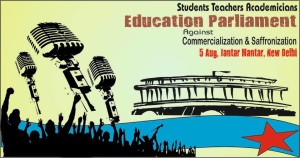
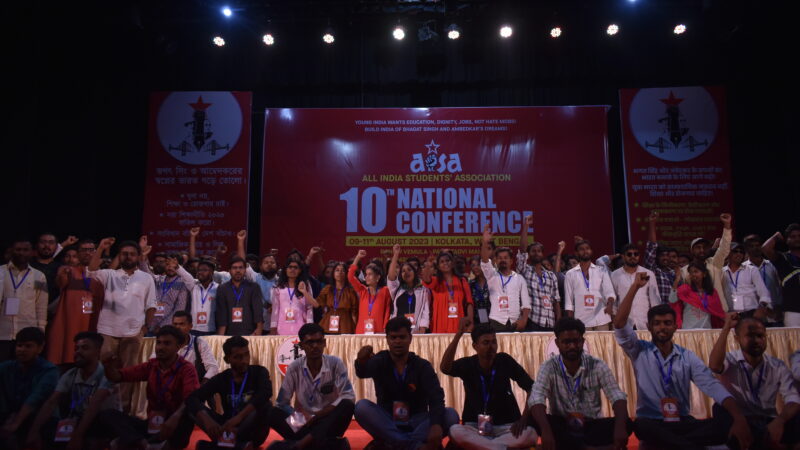

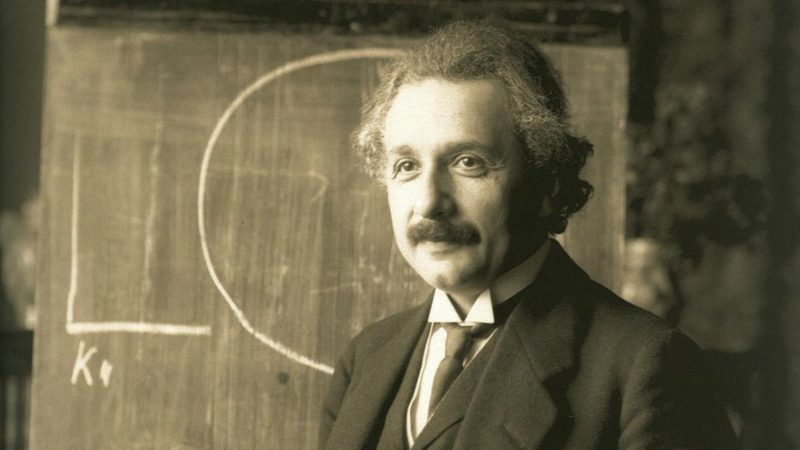
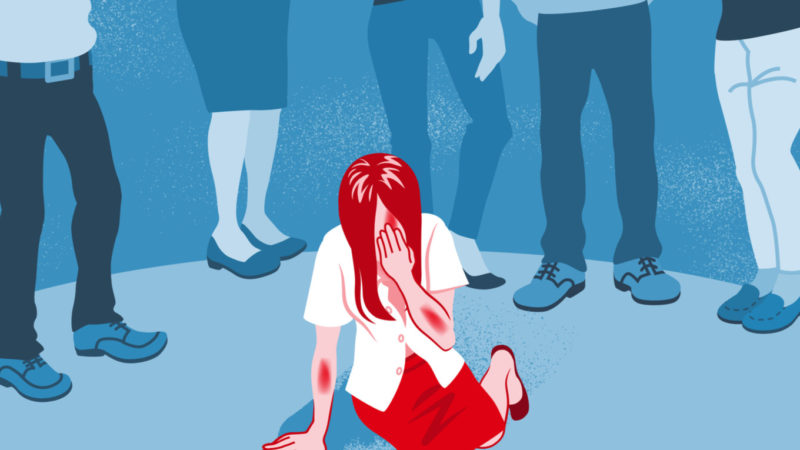
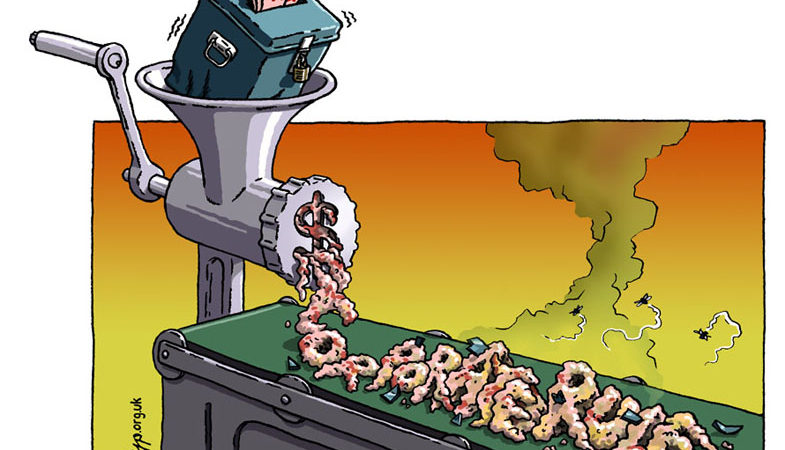

Communists propaganda.
Shutdown antinational JNU.